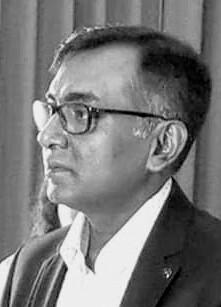Time management is very much important in IIT JAM. The eduncle test series for IIT JAM Mathematical Statistics helped me a lot in this portion. I am very thankful to the test series I bought from eduncle.
Nilanjan Bhowmick AIR 3, CSIR NET (Earth Science)- UGC NET
- English
How tradition & individuality goes together according to eliot
how tradition & individuality goes together according to Eliot
- 0 Likes
- 2 Comments
- 0 Shares
-
![comment-profile-img]() >
>
-
![comment-profile-img]() >
>
Deb dulal halder Halder Best Answer
T. S. Eliot underlines the significance of tradition as he says “Tradition is a matter of wider significance.” He questions the critical habit of appreciating a poet principally for those elements in his work which are more individual and differentiate him from others – “One of the facts that might come to light in this process is our tendency to insist, when we praise a poet, upon those aspects of his work in which he least resembles anyone else. In these aspects or parts of his work we pretend to find what is individual, what is the peculiar essence of the man. We dwell with satisfaction upon the poet’s difference from his predecessors, especially his immediate predecessors; we endeavour to find something that can be isolated in order to be enjoyed. Whereas if we approach a poet without this prejudice we shall often find that not only the best, but the most individual parts of his work may be those in which the dead poets, his ancestors, assert their immortality most vigorously.” Thus, according to T. S. Eliot, what is usually considered to be the most individual part(s) of a poet’s work may be those which are with the influence of his poetic ancestors. Speaking of the importance of tradition, Eliot observes “It (tradition) cannot be inherited, and if you want it you must obtain it by great labour. It involves, in the first place, the historical sense, which we may call nearly indispensable to anyone who would continue to be a poet beyond his twenty-fifth year; and the historical sense involves a perception, not only of the pastness of the past, but of its presence; the historical sense compels a man to write not merely with his own generation in his bones, but with a feeling that the whole of the literature of Europe from Homer and within it the whole of the literature of his own country has a simultaneous existence and composes a simultaneous order. This historical sense, which is a sense of the timeless as well as of the temporal and of the timeless and of the temporal together, is what makes a writer traditional. And it is at the same time what makes a writer most acutely conscious of his place in time, of his contemporaneity.” No poet has his complete meaning alone. For proper assessment, one must set a poet, for contrast and comparison, among dead poets and artists. Eliot envisages a dynamic relationship between past and present writers. “The existing monuments form an ideal order among themselves, which is modified by the introduction of the new (the really new) work of art among them.” An artist or a poet can be evaluated only by the standards of the past; but this does not denote the standards of the dead critics. It means a judgment when two things – the old and the new, are measured in terms of each other. To a greater extent, this reminds one of Mathew Arnold’s “Touchstone Method.” The “ideal order” formed by the “existing monuments” provide the standard, a kind of touchstone, for assessment. As with Arnold’s touchstone method, Eliot’s ‘ideal order’ is subjective and is in need of modification from time to time. Eliot stresses on the fact that the artist should know “the mind of Europe – the mind of his own country – a mind which he learns in time to be more important than his own private mind.” What Eliot means here is a consciousness of the past, an awareness of the historical sense and not merely pedantic knowledge. Some people have a greater sensitivity to this historical awareness, as Eliot states, “Some can absorb knowledge, the more tardy may sweat for it. Shakespeare acquired more essential history from Plutarch than most men could from the whole British Museum.”
Do You Want Better RANK in Your Exam?
Start Your Preparations with Eduncle’s FREE Study Material
- Updated Syllabus, Paper Pattern & Full Exam Details
- Sample Theory of Most Important Topic
- Model Test Paper with Detailed Solutions
- Last 5 Years Question Papers & Answers
Sign Up to Download FREE Study Material Worth Rs. 500/-










 >
>







Deb dulal halder Halder![best-answer]()
thus when a poet writes he should have a knowledge of the poetic tradition within which he places himself and at the same time have his unique take and stand on the tradition which is his individual talent